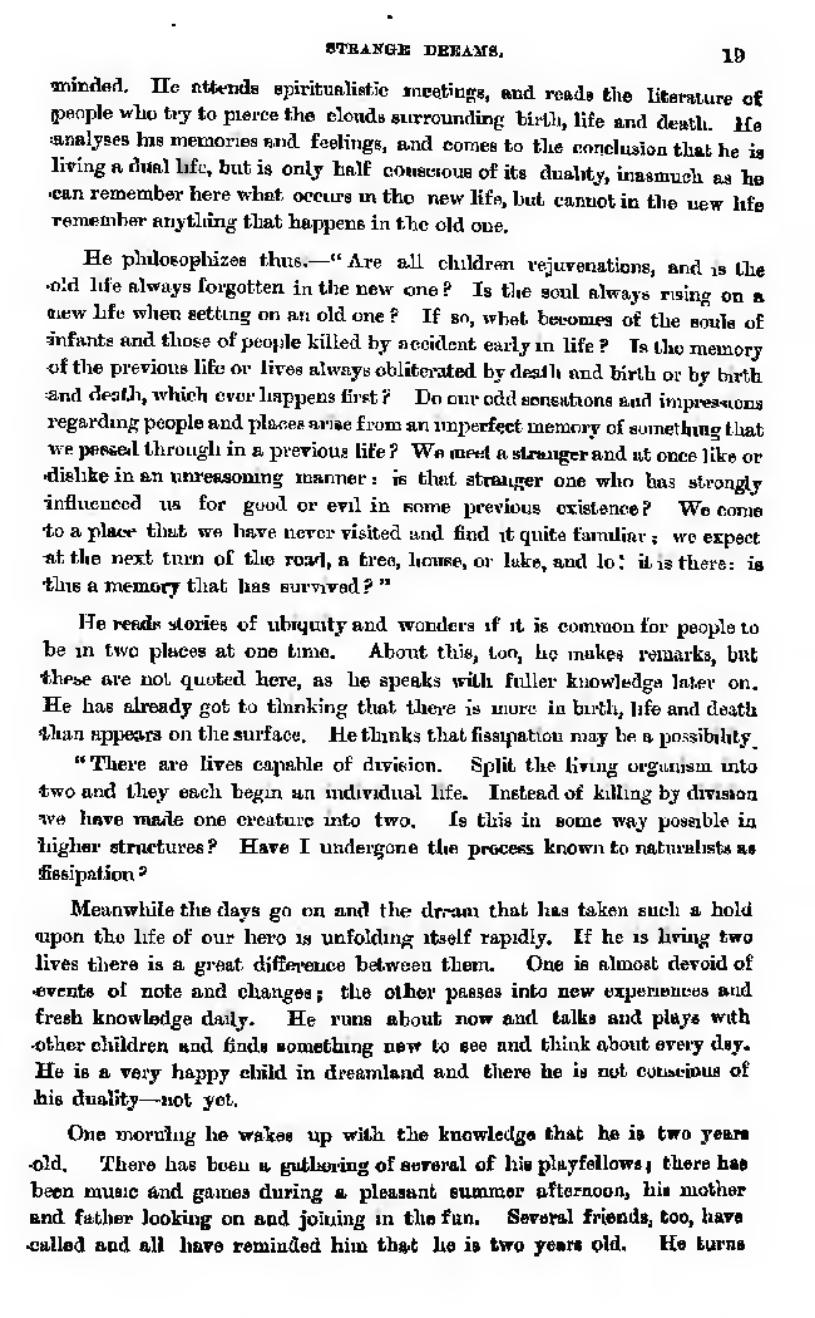minded. He attends spiritualistic meetings and reads the literature of people who try to pierce the clouds surrounding birth, life and death. He analyses his memories and feelings, and comes to the conclusion that he is living a dual life, but is only half conscious of its duality, inasmuch as he can remember here what occurs in the new life, but cannot in the new life remember anything that happens in the old one.
He philosophizes thus;—"Are all children rejuvenations, and is the old life always forgotten in the new one? Is the soul always rising on a new life when setting on an old one? If so, what becomes of the souls of infants and those of people killed by accident early in life? Is the memory of the previous life or lives always obliterated by death and birth or by birth and death, which ever happens first? Do our odd sensations and impressions regarding people and places arise from an imperfect memory of something that we passed through in a previous life? We meet a stranger and at once like or dislike in an unreasoning manner: is that stranger one who has strongly influenced us for good or evil in some previous existence? We come to a place that we have never visited and find it quite familiar; we expect at the next turn of the road, a tree, house, or lake, and lo: it is there: is this a memory that has survived?"
He reads stories of ubiquity and wonders if it is common for people to be in two places at one time. About this, too, he makes remarks, but these are not quoted here, as he speaks with fuller knowledge later on. He has already got to thinking that there is more in birth, life and death than appears on the surface. He thinks that fissipation may be a possibility.
"There are lives capable of division. Split the living organism into two and they each begin an individual life. Instead of killing by division we have made one creature into two. Is this in some way possible in higher structures? Have I undergone the process known to naturalists as fissipation?
Meanwhile the days go on and the dream that has taken such a hold upon the life of our hero is unfolding itself rapidly. If he is living two lives there is a great difference between them. One is almost devoid of events of note and changes; the other passes into new experiences and fresh knowledge daily. He runs about now and talks and plays with other children and finds something new to see and think about every day. He is a very happy child in dreamland and there he is not conscious of his duality—not yet.
One morning he wakes up with the knowledge that he is two years old. There has been a gathering of several of his playfellows; there has been music and games during a pleasant summer afternoon, his mother and father looking on and joining in the fun. Several friends, too, have called and all have reminded him that he is two years old. He turns
